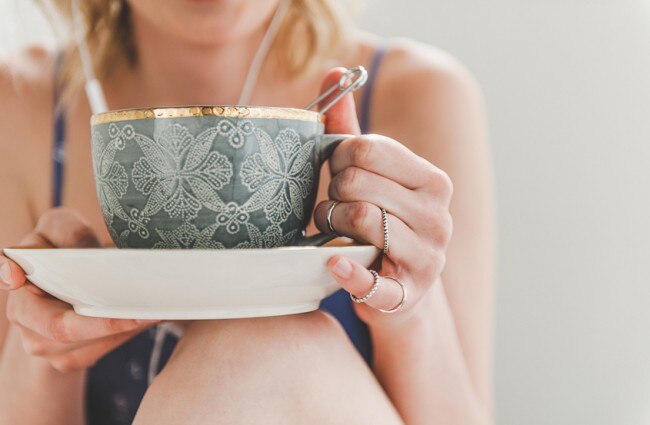As the most commonly used psychoactive drug in the world, caffeine is generally delivered to our brain central nervous system in the form of coffee, but tea is quickly gaining popularity as a way to get that “morning boost.” According to the Tea Association of the U.S.A. Inc., over 158 million Americans will drink tea today — that’s about half of the U.S. population!
Recommended amounts
While there is no specific recommended caffeine intake amount in the U.S., the FDA states that for healthy adults, a daily caffeine intake up to 400 milligrams (mg) is safe and not associated with adverse health effects.
Caffeine content in tea
All teas derived from the Camellia sinensis plant, including green tea and black teas, even decaffeinated versions, will contain some level of caffeine while herbal infused versions such as chamomile or peppermint are naturally caffeine free. In reality, herbal infusions, well known as herbal teas, are not considered “true tea” because they do not come from the Camellia sinensis plant.
It is difficult to determine the exact amount of caffeine in tea but different varieties, leaves, growing methods, and proper steep time can help. Keep in mind that typical caffeine levels for tea are less than half that of coffee, ranging from 20-90 mg in 8 ounces (compared to 50-120 mg in coffee).
| Brewed tea |
Estimated Caffeine Content Per 8 fl. oz. |
| Black tea | 14-70 mg |
| Green tea | 24-45 mg |
| White tea | 10-15 mg |
| Yerba Mate tea | 35 mg |
| Black Pu’erh tea | 60 – 70mg |
| Oolong tea | 30-50 mg |
| Herbal Infusion | 0 mg |
| Rooibos tea | 0 mg |
If you plan to infuse a tea bag more than once, remember each time it is used, the caffeine dose will decrease. For example, the first cup of Oolong tea could yield about 30–50 mg, 15–25 mg in the second and 5–10 mg in the third.
Get the most from your tea
The water temperature and steep time has the biggest impact on the amount of caffeine that ends up in the cup. In general, green and white teas require steeping in 175°F water for one to three minutes. On the other hand, chai tea and other black teas should be steeped in boiling water (212°F) for three to five minutes. You can always refer to the tea box for recommended steep time and water temperature.
Health benefits of tea
Tea contains several types of antioxidants in varying levels. There have been some studies which have looked at how the unique makeup of various types of tea may impart health benefits. We also know that drinking unsweetened tea can help avoid the sugar and calorie contributions of other beverage types.
Keep in mind, tea alone cannot fight disease and should be incorporated into a healthy lifestyle that includes a well-balanced eating habits, exercise and adequate sleep.
This article was contributed by Courtney Kiang, RD, registered dietitian nutritionist with The Little Clinic (inside select Kroger locations). For more information about dietitian services, visit www.thelittleclinic.com/dietitians.

